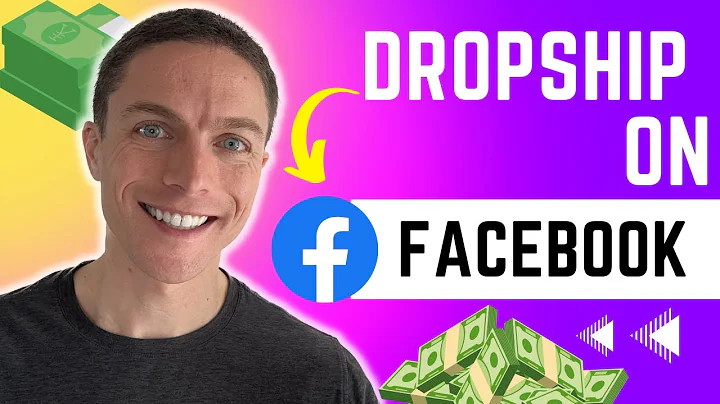Maximize Your Profits with Amazon Dropshipping
Table of Contents
- Introduction
- What is Amazon Drop Shipping?
- The Difference Between Private Label and Drop Shipping
- How Does Drop Shipping Work?
- Pros and Cons of Drop Shipping
- Pros
- Cons
- The Importance of Legitimate Wholesale Suppliers
- Risk of Account Suspension and Loss of Privileges
- Profit Margins in Drop Shipping
- Building a Sustainable Business
- Why Amazon FBA is a Better Option
- Conclusion
Introduction
In this article, we will be discussing the topic of Amazon Drop Shipping. We will explore what drop shipping is, how it differs from private label selling, the pros and cons of drop shipping, and the factors to consider when choosing between drop shipping and other e-commerce models. By understanding the intricacies of drop shipping and its implications for your business, you will be able to make informed decisions and take the right steps towards building a successful online venture.
What is Amazon Drop Shipping?
Amazon drop shipping is a business model where sellers list products on Amazon without holding any inventory. When a customer makes a purchase, the seller contacts a supplier, who then ships the product directly to the customer. This means that the seller acts as a middleman between the supplier and the customer, without physically handling the products.
The Difference Between Private Label and Drop Shipping
Private label selling on Amazon involves branding existing products and selling them under your own brand. This requires holding inventory and sending it to Amazon's fulfillment centers. Drop shipping, on the other hand, does not require holding inventory or branding products. Sellers simply list existing products on Amazon and rely on suppliers to fulfill orders.
How Does Drop Shipping Work?
Drop shipping typically involves contacting drop shipping suppliers from platforms like Alibaba, AliExpress, or Walmart, and partnering with them to fulfill orders. When a customer purchases a product from the seller's listing on Amazon, the seller forwards the order details to the supplier, who then ships the product directly to the customer.
Pros and Cons of Drop Shipping
Pros
There are several advantages to drop shipping as a business model:
- Low upfront costs: As a drop shipper, you do not have to invest in inventory upfront, reducing the initial financial burden of starting a business.
- No need for warehousing: Without holding inventory, you don't need to worry about storing products or managing a warehouse.
- Flexibility and scalability: Drop shipping allows you to test different products and niches without committing to large quantities. It also allows for easy scaling as the supplier handles fulfillment.
- Wide product selection: With drop shipping, you can sell a wide range of products without the limitations of holding inventory.
Cons
While drop shipping has its advantages, there are also some drawbacks to consider:
- Lower profit margins: Drop shipping typically yields lower profit margins compared to other e-commerce models like private label selling. This is because the seller is acting as a middleman and must factor in the supplier's costs.
- Limited control over fulfillment: Since the supplier handles order fulfillment, you have limited control over packaging, shipping times, and customer experience.
- Potential for account suspension: Drop shipping from retailers like Alibaba, AliExpress, or Walmart is against Amazon's terms of service. Using these platforms as suppliers may result in account suspension.
- Lack of brand building: With drop shipping, you are not building your own brand as you would with private label selling. This can limit long-term sustainability and potential for profitable exits.
The Importance of Legitimate Wholesale Suppliers
When engaging in drop shipping, it is crucial to work with legitimate wholesale suppliers. Retailers like Alibaba, AliExpress, or Walmart are not considered wholesalers and using them as suppliers may violate Amazon's terms of service. Partnering with reputable wholesalers ensures compliance with Amazon's policies and reduces the risk of account suspension.
Risk of Account Suspension and Loss of Privileges
One of the main reasons to reconsider drop shipping is the risk of account suspension. Engaging in drop shipping practices that go against Amazon's terms of service can lead to the suspension of your seller account. Losing the privileges of selling on Amazon can have severe consequences for your business and hinder its long-term growth potential.
Profit Margins in Drop Shipping
Profit margins in drop shipping tend to be lower compared to other e-commerce models like private label selling. While specific profit margins may vary, it is common for drop shippers to achieve around 10% profit margins after accounting for fees and costs associated with the supplier. In contrast, private label sellers often enjoy profit margins of 30% to 35%, making it a more financially attractive option.
Building a Sustainable Business
Drop shipping is often associated with fast turnover and quick money. However, it may not offer the long-term sustainability and growth potential that many entrepreneurs seek. Building a successful business involves creating a brand, improving products, and establishing a loyal customer base. These elements are challenging to achieve with drop shipping, making it less ideal for those looking to build a sustainable business.
Why Amazon FBA is a Better Option
For individuals starting an e-commerce business, Amazon FBA (Fulfillment by Amazon) offers a more favorable alternative to drop shipping. With FBA, sellers can utilize Amazon's vast infrastructure, including storage, packaging, and shipping, while still maintaining control over their inventory and brand. Amazon FBA allows for scalability, better profit margins, and the potential to build a valuable business with long-term growth prospects.
Conclusion
While drop shipping may seem appealing due to its low upfront costs and flexibility, it comes with its own set of challenges and limitations. The risk of account suspension, lower profit margins, and a lack of brand building opportunities make drop shipping a suboptimal choice for individuals looking to establish a sustainable and profitable business on Amazon. Instead, considering options like private label selling or utilizing Amazon FBA can offer greater potential for long-term success in the e-commerce industry.
Highlights
- Understanding the concept of Amazon drop shipping
- The difference between private label selling and drop shipping
- Pros and cons of drop shipping as a business model
- The importance of working with legitimate wholesale suppliers
- The risk of account suspension and loss of privileges
- Profit margins in drop shipping compared to other e-commerce models
- Building a sustainable business and the limitations of drop shipping
- The benefits of Amazon FBA as an alternative to drop shipping
- Tips for individuals starting an e-commerce business on Amazon
- Making informed decisions and choosing the right business model
FAQs
Q: What is the main difference between private label selling and drop shipping on Amazon?
A: Private label selling involves branding existing products and selling them under your own brand, while drop shipping does not require holding inventory or branding products. Drop shippers act as middlemen, relying on suppliers to fulfill orders.
Q: Can drop shipping be done from any supplier?
A: No, drop shipping should be done from legitimate wholesale suppliers who comply with Amazon's terms of service. Drop shipping from retailers like Alibaba, AliExpress, or Walmart is against Amazon's policies and can lead to account suspension.
Q: What are the advantages of drop shipping?
A: Drop shipping offers low upfront costs, flexibility to test different products, and a wide selection of items to sell without holding inventory.
Q: Is drop shipping a sustainable business model?
A: Drop shipping is often associated with fast turnover and quick money, but it may not offer long-term sustainability and growth potential. Building a brand and establishing a loyal customer base can be challenging with drop shipping.
Q: What is Amazon FBA?
A: Amazon FBA (Fulfillment by Amazon) allows sellers to utilize Amazon's infrastructure, including storage, packaging, and shipping, while maintaining control over their inventory and brand. This offers scalability, better profit margins, and the potential to build a valuable business on Amazon.










